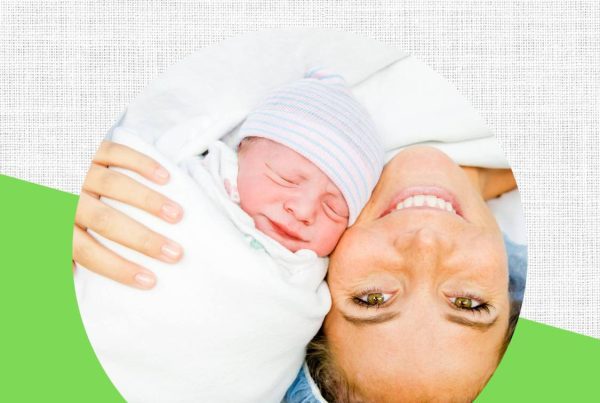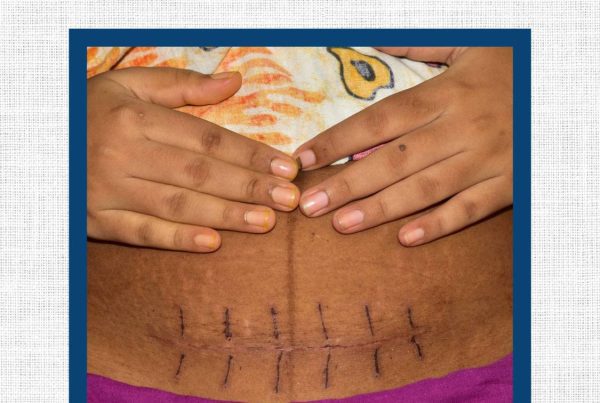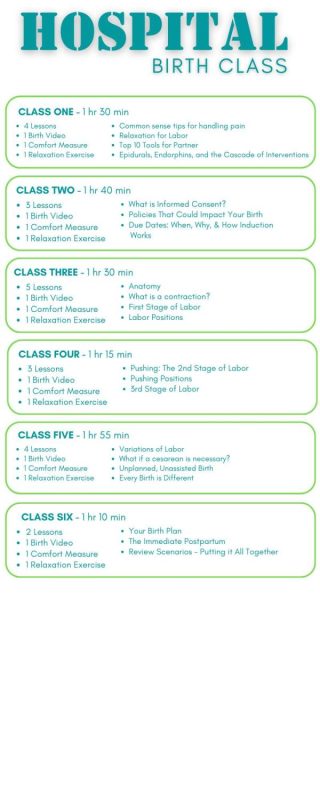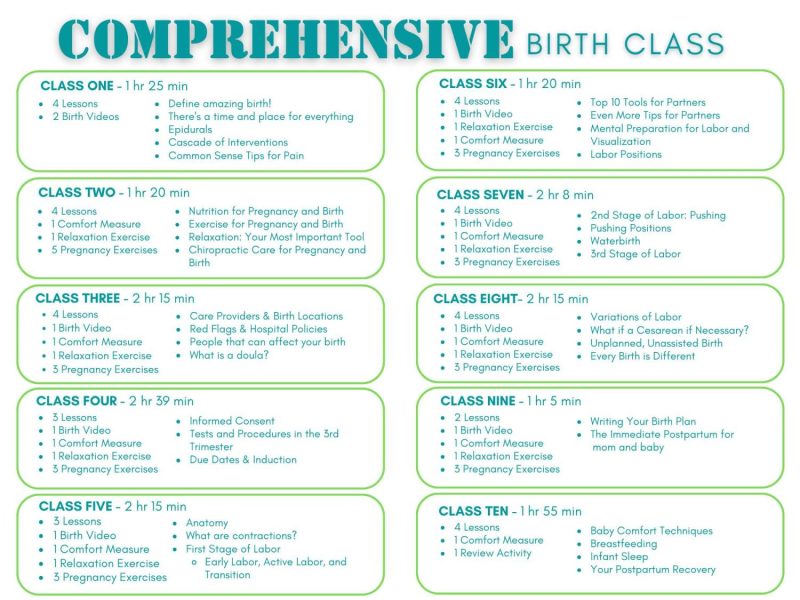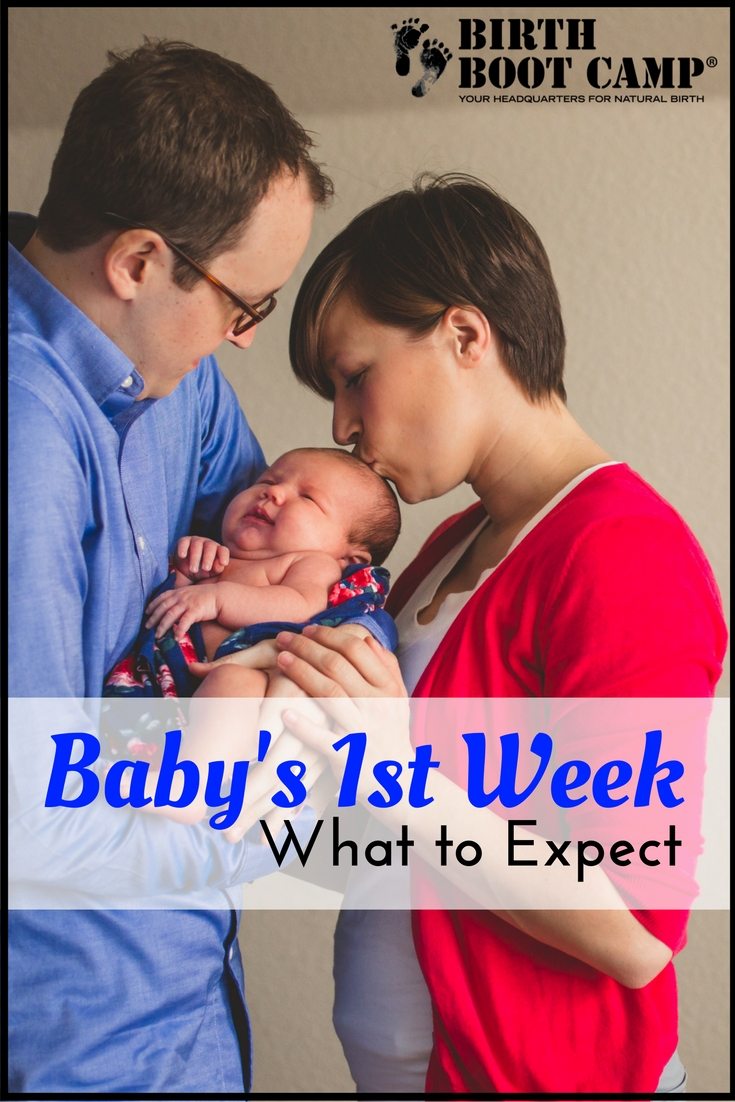
Your baby is born. You are finally home and snuggled up together. Your body feels different than it ever has before. Your baby is a fascinating creature- once part of you, now separate, but not quite.
Intense. Overwhelming. Beautiful. Sacred.
The first days with baby and with your new and still changing body are all of these things and can come as something of a shock to the new family.
Knowing what to expect your first week with a newborn can help you settle better, realize you are normal, and enjoy this intensely personal yet universal time of life.
Newborns, for good reason, aren’t often taken out into the world, so many of us are unfamiliar with these fleeting days of newborn babyhood. Even what a newborn really looks like can remain hidden until we have our own tiny baby. So let’s talk about what is going on with your baby in that first week.
What to Expect Your First Week With Baby-
Frequent nursing-
Some still advise new mothers to shorten those first feedings to only 10 or 20 minutes, not understanding that a newborn baby is used to the steady flow of nourishment provided by the placenta. A newborn has, previous to birth, been fed constantly.
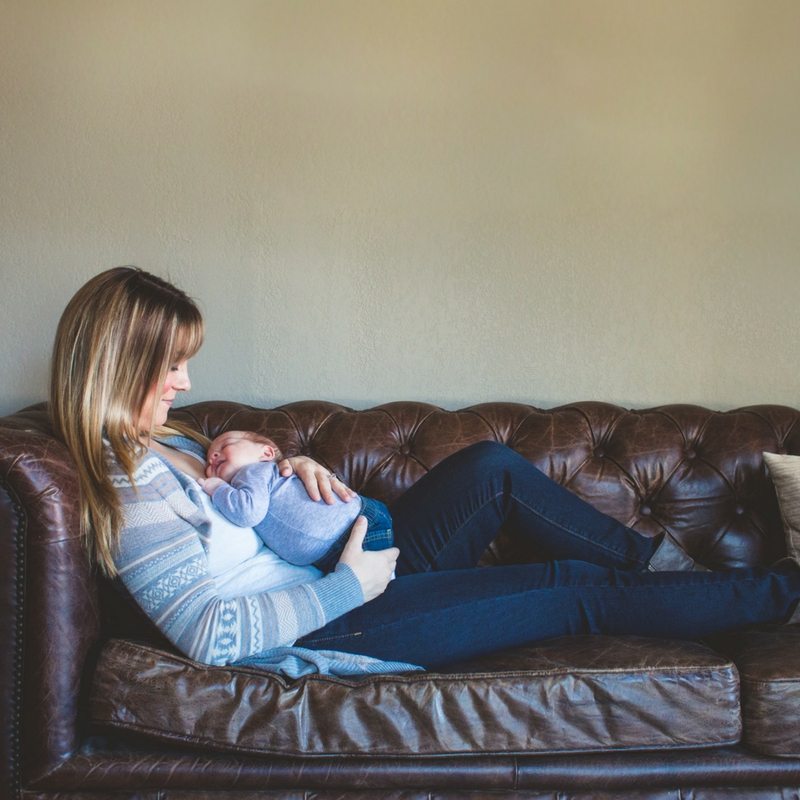
While feeding every hour or two may seem like a lot to the new family, it is actually far less the baby is used to!
The newborn stomach is tiny at birth- about the size of a marble- and is still very small by the end of the first week. Your baby isn’t being spoiled, it’s eating less than ever.
Poop-
At first your baby’s poop will be very dark, almost black. This first poop is called meconium. As your milk comes in the poop gets lighter in color and it turns from black to green to a mustard yellow. The frequent nursing, mentioned above, helps ensure that this happens.
Removing meconium can be a little hard because it is quite sticky and baby’s soft skin is very sensitive. Some coconut or olive oil on a soft cloth gets it off gently and easily without exposing their tender skin to chemicals.
Frequent waking-
Remember when your baby was inside and would start kicking and moving as soon as you lay down to sleep? Sometimes they do this same thing when they are on the outside! Newborn babies in the first week of life often sleep a lot- sometimes as much as 20 hours a day.

They will NOT however sleep for 20 hours straight. This wouldn’t help them grow! Newborn babies wake frequently in this period, often every hour or two to eat.
Sometimes babies have their night and day switched and sleep all day and seem to come alive at night! Sometimes mimicking the womb with sounds (water, shushing, heartbeat), being held tightly, constant movement, the ability to suck, etc, can help ease the transition for your baby from the womb to the outside world. Remember, this is all new for them too! Here are some tips to gently help your baby sleep.
Physically-
Physically a newborn baby in the first week of life small, curled in the fetal position like a tiny little spring, and changing daily. This first week of newborn life is sometimes a hard transition, but it is also a fleeting time where they change daily, even within the hour.
The initial head molding of birth quickly passes and they look very different a few hours after birth than they did initially.
Laguno or a soft covering of hair sometimes covers the brand new baby. Eventually this soft hair rubs off. Babies can also have bruising on their faces or head from the birth process. This too will fade quickly. Sometimes tiny little bump called milia are on the skin of their face.
The first week with baby is full of changes for them, and for you!
Your body the first week postpartum:
Big shifts-
Your body during the first week after giving birth is making some big changes. The hormones of pregnancy are unique and the first week after you give birth make some massive shifts back to a non-pregnant state as well as your body preparing for breastfeeding. It is not uncommon to have some weepy days, especially the third to fifth day postpartum as your milk comes in and your hormones balance.
Emotionally-
Wow- emotions just after having a baby can be kind of crazy and really run the gamut from one woman to the next and one day to the next. Some women feel very euphoric as they embrace their new baby. Others are overwhelmed. Others experience sadness, crying, and depression. Some swing from one to the next as they navigate this first week. It really is a tender and emotional time of life.
Just like transition labor is the most intense part of the process of birth, the transition from one person to two or from a woman to a mother can also be very intense and difficult.
It can help to be surrounded by support, to not expect too much from yourself or baby, to communicate needs when possible, and to just take things slow.
If you feel like you need more help or are feeling particularly sad or anxious, care providers can provide additional resources. Some online sources that exist as well and include:
- Postpartum Support International has a chat line
- Postpartum Progress with great resources and articles
- The Edinburg Postnatal Depression Scale where you can take a test assessing risk
- About Postpartum Depression
Healing-
Birth, no matter how it is experienced, it requires healing and rest. If you are birthing in the hospital, you will spend the first day or three in the hospital recovering before you are sent home. Soreness is very normal after a vaginal birth and incision pain after a cesarean birth. (Breastfeeding after cesarean birth has it’s own unique journey. Here are some tips.)
Sleep, rest, short walks, lots of water and nutritious foods can all help your body heal during this first week.
It is imperative that a new mother have others around her who can help with everyday chores in those first few weeks. Only the baby should be lifted by mom! (Here are some more tips on postpartum recovery, the first week and beyond.)
Postpartum bleeding-
During your pregnancy you don’t experience menstruation but your body makes up for it post birth! The blood loss after childbirth is known as lochia and is caused by bleeding from the placental insertion site as it heals up after the birth.
The few days after the birth is when bleeding is the heaviest and it gradually lessens as time goes on, totally ending by around 12 weeks or earlier. An array of maxi pads in various absorbancies and even a few adult diapers can help you during this time. Your hospital or midwife may provide these or include something in your birth kit. You may also want to purchase some items before the birth to have on hand.
Extra sheets on the bed and chux pads can help you sleep without worry too. There are lots of little things you can do to prepare for postpartum bleeding- find more info in this post.
Night sweats-
Sometimes women experience night sweats just after having a baby as their bodies work to rid themselves of some of the excess fluids stored during pregnancy as well as the hormonal shifts postpartum. While these aren’t always pleasant, they are normal. A folded flat sheet under you during the night can be thrown in the wash in the morning. Lightweight clothes can help too.
Physically-
While movie stars are sometimes seen taking the runway or the covers of magazines immediately postpartum in slinky dresses, most women look like they just had a baby when they have just had a baby.

Your body will return to a more normal state postpartum, but the first week most women still look a few months pregnant.
Your organs are still moving back into place and your uterus, where your baby was living, is still bigger than normal.
Have comfortable, stretchy clothes on hand. In fact, stay in your pajamas the first week postpartum so that nobody expects you to cook them dinner!
~
That first week after the birth with your newborn will be filled with intensity and it literally flies by. It goes so quickly it can feel like a blur. My how life has changed! This is a special time full of many extremes. Sometimes documenting what is happening and your feelings about it through journaling or photographs or any creative outlet can be helpful. Writing your birth story can also be beneficial as your process this life experience.
There isn’t a right or wrong way to experience the first week with your baby, there is just your way.
Many women have walked this path before you and all in their own way. Welcome to motherhood!

